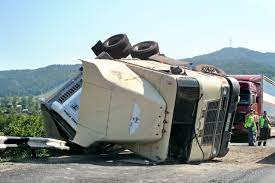The energy on the Paradise Strip draws millions, but bustling casino floors and resort complexes come with real safety risks. When a slip on polished marble, a fall on an escalator, or a nightclub scuffle changes a vacation, visitors often feel overwhelmed by what to do next. This guide explains how claims work, what evidence matters most, and how to navigate Nevada’s specific rules without getting lost in legal jargon. Along the way, you’ll learn how to safeguard your rights from day one and what to expect from casino insurers and risk teams. If you’re weighing your options or comparing firms, experienced counsel like Cameron Law can help map out strategy quickly. We also highlight recurring patterns in Paradise Casino Accidents so you can make informed, practical decisions.
Common Causes of Casino Accidents in Paradise’s Major Resorts
Paradise resorts feature vast casino floors, shopping promenades, pool decks, and nightlife venues, and each area carries different hazards. Many injuries stem from slick tiles near bars or buffets, spills that weren’t cleaned promptly, and torn carpets that catch heels or mobility devices. Escalators and moving walkways can malfunction or stop abruptly, causing chain-reaction falls in crowded conditions. Nightclub environments introduce their own risks: over-service of alcohol, poor crowd control, or inadequate lighting. Parking garages and valet lanes can present traffic conflicts, especially when drivers and pedestrians compete for limited space. Because Paradise Casino Accidents often happen fast and in public areas, documenting the scene quickly can make or break a claim.
High-Risk Areas Guests Overlook
Certain spots consistently generate claims because maintenance cycles or staffing levels can’t always keep up with guest volume. Pool decks become slippery as sunblock and water mix on surfaces not textured for traction; even at world-class resorts, a warning cone isn’t a cure-all. Buffet aisles and beverage stations create a steady stream of drops and spills, making proactive inspection logs essential. Elevators, escalators, and rideshare pickup points also see spikes in incidents late at night when crowds swell and supervision thins. Finally, temporary setups for conventions or concerts may leave cords, platforms, or signage bases intruding into walkways, creating trip hazards that aren’t obvious from a guest’s perspective.
How Property Owner Negligence Leads to Visitor Injuries
Under Nevada premises liability law, casinos owe patrons a high duty of care because guests are considered business invitees. That duty includes routine inspections, timely cleanup, adequate lighting, compliant handrails and steps, and security policies scaled to foreseeable risks. Negligence occurs when an owner knew or should have known about a dangerous condition—and failed to fix it or warn in time. Sometimes the problem is indirect, such as insufficient staffing that delays response times or inadequate training that leads to mistakes in hazard recognition. Documentation is crucial: inspection logs, maintenance work orders, and security staffing rosters can show whether the property’s systems worked or failed. When these records are thin or inconsistent, it often corroborates a pattern of oversight rather than a one-off accident.
What Reasonable Care Looks Like
Reasonable care is not perfection; it’s a consistent, proactive system tailored to the casino’s size and traffic patterns. That typically includes scheduled floor sweeps near bars and buffets, frequent safety checks on escalators and moving walkways, and lighting audits in garages, stairwells, and paths. It also means well-trained staff who recognize hazards, document them, and act swiftly, along with managers who enforce policies without shortcuts. When cases reveal that logs were copied forward, inspection routes were skipped, or security was spread too thin, liability becomes far easier to prove. Working with a firm like Cameron Law can help identify where procedures fell short in the days and hours leading up to the incident, and connect those failures to the specific injury outcomes.
Proving Liability Through Surveillance Footage and Incident Reports
Casinos are famous for cameras, and that network can be the strongest evidence in an injury claim. However, surveillance retention policies may result in footage being overwritten in as little as 7 to 30 days, especially for angles not flagged as “incident-related.” Promptly requesting preservation and sending a formal spoliation letter is essential to protect key video before it disappears. Incident reports filed by security or management can also anchor the timeline, identify employees on scene, and describe conditions such as wet floors, lighting, or crowding. While those reports may emphasize the casino’s narrative, inconsistencies between the report, video, and witness statements often open the door to liability. In Paradise Casino Accidents, the combination of multiple camera angles and precise time stamps is often decisive when reconstructing the moments before a fall or altercation.
Steps to Preserve Evidence Quickly
Move fast and be specific about the footage you want preserved. Identify the exact location, time window, and any adjacent angles that may show approach paths or maintenance activity before the incident. Ask for copies of the incident report, radio dispatch logs, and maintenance or housekeeping records tied to the area for that shift. Seek contact details for all witnesses, including employees, and photograph the scene as it appeared when you were injured. The more precisely you define the evidence, the harder it is for a property to plausibly claim it didn’t exist or wasn’t relevant.
The Role of Security and Maintenance in Casino Safety
Security teams handle more than crowd control; they’re often first on scene to medical calls, slip-and-falls, and disputes that can escalate. Their training, deployment, and response times play a major role in preventing small hazards from turning into major injuries. If a property understaffs peak hours or assigns too few officers to high-risk zones, delays in response can prolong exposure to dangers like spills or congested stairwells. Maintenance and housekeeping units are equally crucial, especially in areas with constant spill potential or heavy equipment such as escalators. Where logs show regular inspections and prompt remedial action, casinos have a stronger defense; where records are missing or generic, negligence is easier to establish. Coordinated protocols between security and maintenance—such as immediate hazard isolation with barriers instead of just a cone—often determine outcomes.
When Staffing Levels Become a Liability
Courts look at foreseeability, and staffing is part of that equation because guest volume is predictable on weekends, holidays, and event nights. If a nightclub runs a major promotion or a sportsbook hosts a championship viewing and the property doesn’t scale security and housekeeping accordingly, that mismatch can underpin a negligence finding. Similarly, failure to schedule escalator technicians or promptly shut down malfunctioning units during high traffic windows raises the risk of multi-person injuries. Patterns of complaints—whether through guest apps, internal radio logs, or prior incident reports—can show management knew about stress points and still failed to adjust. When cases expose these patterns, the narrative shifts from an isolated mishap to systemic under-resourcing that endangers visitors.
Filing Deadlines and Compensation Rules Under Nevada Law
Nevada’s statute of limitations for most personal injury claims is generally two years from the date of injury, a critical deadline for visitors who return home and assume they can “circle back.” Waiting too long risks losing access to surveillance footage and key witnesses, even if you remain within the filing window. Claims on behalf of minors may be tolled, and wrongful death claims also follow a two-year clock, but you should verify specifics early. Nevada follows a modified comparative negligence rule: your recovery is reduced by your percentage of fault, and you cannot recover if you are 51% or more responsible. Most premises cases have no cap on compensatory damages like medical bills or pain and suffering, but punitive damages are capped in many situations—typically up to three times the compensatory award if that total is $100,000 or more, or $300,000 if under that threshold. Out-of-state visitors should expect Nevada law to apply to Paradise Casino Accidents that occur on local properties.
Key Deadlines and Money Rules at a Glance
- Statute of limitations: generally two years for personal injury; do not assume extensions apply without verification.
- Comparative fault: recovery reduced by your percentage of responsibility; barred at 51% or higher fault.
- Damages: no general cap on compensatory damages in typical premises claims; punitive damages usually capped by statute.
- Attorney’s fees: not automatically recoverable; Nevada’s offer-of-judgment rules can affect costs and interest.
- Evidence timeline: surveillance can overwrite quickly; early preservation demands are often as important as filing deadlines.
Recent Legal Cases Highlighting Casino Accountability
Recent Nevada litigation has spotlighted several recurring themes in casino injury cases, especially around documentation and video retention. Courts and juries tend to scrutinize whether inspection and cleaning logs reflect real-time work or post-incident backfilling, which undermines credibility. Another frequent issue is scope of surveillance disclosure: properties sometimes produce only the immediate fall or conflict, while plaintiffs argue that earlier footage shows how the hazard developed or whether staff ignored it. Where judges find that relevant video was not preserved after the property knew of an incident, spoliation instructions or adverse inferences can shift momentum toward the injured visitor. For Paradise Casino Accidents involving escalators, moving walkways, or nightclub security, litigants often succeed by connecting policy gaps—like understaffing or delayed shutdowns—to predictable, preventable injuries.
Trends That Are Shaping Outcomes
Several patterns stand out across recent filings and reported decisions. First, detailed maintenance and security protocols are no substitute for consistent execution; when cross-examined, vague logs and missing time stamps are treated as red flags. Second, prior incidents in the same location, even if not identical, can establish that risks were foreseeable and demanded stronger intervention—better lighting, added barriers, or more staff. Third, claims involving intoxication are increasingly fact-specific: casinos can’t avoid liability simply by pointing to alcohol if their own policies on service and crowd control weren’t followed. Finally, plaintiffs who moved early—securing witness names, photographs, and preservation letters—tend to obtain broader evidence and stronger negotiating leverage. Legal teams with focused premises experience, such as Cameron Law, are often able to thread these elements together into a coherent liability story that resonates with adjusters, mediators, and juries.




